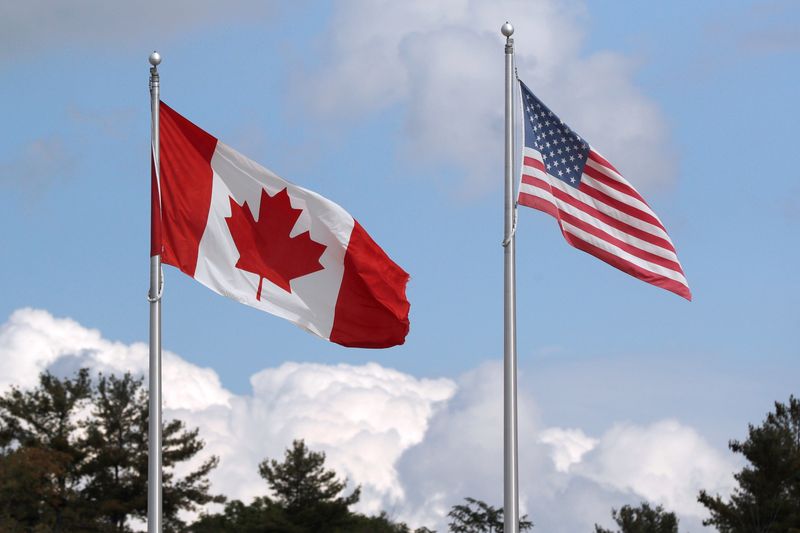WASHINGTON (Reuters) - The U.S.-based National Foreign Trade Council on Thursday blasted Canada for its refusal to back a global agreement to hold off on implementing digital services taxes for at least another year, and said the move could invite retaliation.
NFTC President Jake Colvin said he welcomed news from the OECD that most countries with digital services taxes had agreed to extend the moratorium on implementation. He also said the move would allow countries to keep working a global tax deal in good faith.
"Canada joined Belarus, Russia and a small handful of others in not joining because they seem to want to move forward quickly with their digital services tax," Colvin said. "We're disappointed and confused by Canada's refusal to join the agreement. This puts them way outside consensus. It's troubling and it invites retaliation."
Canadian Finance Minister Chrystia Freeland on Wednesday said the agreement to freeze pillar one implementation by another year put Canada at a disadvantage relative to countries that have been collecting revenue under their pre-existing digital services taxes.
Colvin said Washington could retaliate under the U.S.-Mexico-Canada trade agreement if Canada went ahead and implemented the new tax.
The U.S. government has repeatedly objected to the planned Canadian tax, including through a written statement last year, and as recently as last week, when U.S. Trade Representative Katherine Tai raised the issue during a meeting with Canadian Trade Minister Mary Ng.
"Our position has not changed," a USTR spokesperson said on Thursday. The person had no immediate comment on the issue of potential retaliation.
More than 140 countries were supposed to start implementing next year a 2021 deal overhauling decades-old rules on how governments tax multinationals that are widely considered to be outdated as digital giants like Apple (NASDAQ:AAPL) or Amazon (NASDAQ:AMZN) can book profits in low-tax countries.
Because the process has dragged on, the more than 30 governments that have or plan national digital services taxes had agreed to put them on ice until the end of this year, or drop them altogether once the first pillar of the tax deal takes shape.

Amid concerns among some countries, the plan now calls for governments to sign off before the end of the year with a goal of having the treaty enter force in 2025, instead of in 2024 as previously planned.
Out of the 143 countries that are party to the deal, only five countries - Belarus, Canada, Pakistan, Russia and Sri Lanka - were not in a position at the meeting to offer their support, an OECD official said.